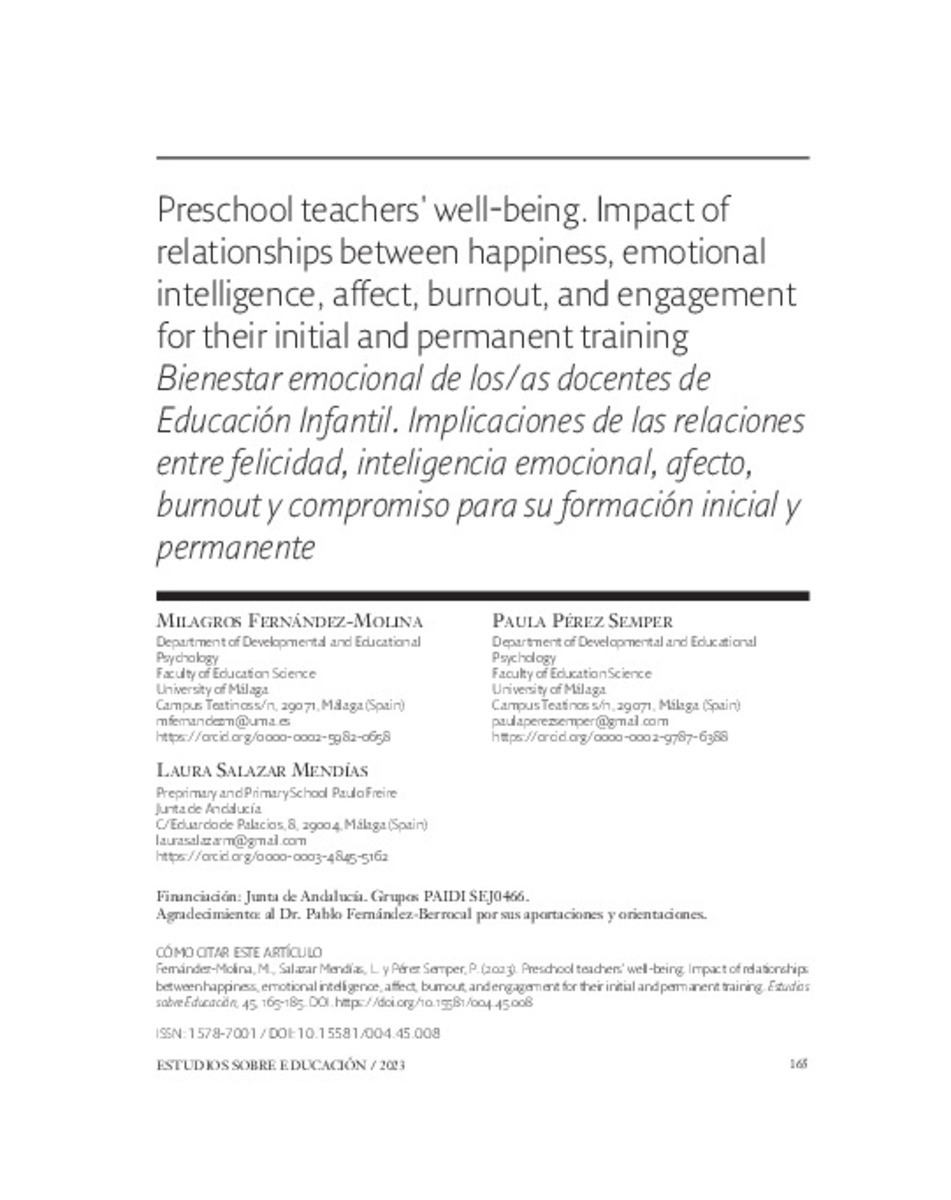Preschool teachers' well-being. Impact of relationships between happiness, emotional intelligence, affect, burnout, and engagement for their initial and permanent training
Keywords:
Felicidad subjetiva
Burnout
Inteligencia emocional
Afectividad
Compromiso
Maestros
Preescolar
Publisher:
Servicio de Publicaciones de la Universidad de Navarra
Citation:
Fernández-Molina, M. (Milagros); Salazar-Mendías, L. (Laura); Pérez-Semper, P. (Paula). "Preschool teachers' well-being. Impact of relationships between happiness, emotional intelligence, affect, burnout, and engagement for their initial and permanent training". Estudios sobre Educación. 45, 2023, 165 - 185
Statistics and impact
0 citas en

0 citas en

Items in Dadun are protected by copyright, with all rights reserved, unless otherwise indicated.








